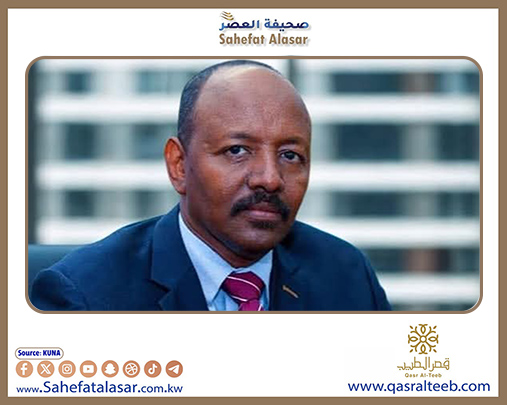


A meeting seen as a critical opportunity to break Sudan's military and political stalemate - particularly amid worsening humanitarian conditions - will convene in Washington on Wednesday as the international quartet attempts to coordinate efforts to end the war raging since April 2023.
Sudanese observers are watching with cautious interest the high-level meeting of the Sudan-focused quartet comprising foreign ministers from the United States, Egypt, Saudi Arabia, and the United Arab Emirates.
Analysts say the quartet's success hinges on several factors: identifying and holding accountable parties obstructing peace, establishing clear objectives, and creating a coherent roadmap for ceasefire implementation followed by serious political engagement with strict enforcement mechanisms.
Military strategist Major General Amin Ismail Majdoub described the meeting as a "glimmer of hope," citing both its venue and the influence of participating parties. In statements to KUNA Tuesday, he affirmed the four nations' capacity to achieve political and field breakthroughs in resolving Sudan's crisis.
The pro-democracy "Tagadum" coalition, led by former Prime Minister Abdalla Hamdok, welcomed the Washington initiative. Spokesperson Jaafar Hassan told KUNA the meeting represents an "important step" toward ending the war, calling for comprehensive ceasefire, humanitarian access, civilian protection, and a political process addressing root causes.
Hassan noted this meeting focuses on regionally influential states, unlike previous initiatives limited to bringing military leaders to negotiations, stating: "The approach has now changed." He anticipated discussions would address both extended ceasefire and launching a political process toward lasting peace, while warning against partial solutions maintaining current battlefield control or power-sharing arrangements lacking democratic transformation.
Political analyst Mohamed El-Amin stressed to KUNA the imperative of developing a unified vision for genuine political transition. These developments follow statements by former U.S. President Donald Trump's senior Africa advisor Masood Boulos emphasizing Washington's direct/indirect engagement with conflict parties to establish a cessation-of-hostilities roadmap.
The U.S. State Department clarified this phase excludes direct combatant or civilian group participation. Neither the Sudanese Armed Forces nor Rapid Support Forces have issued official responses.
A post-meeting joint statement is expected outlining the quartet's unified position on core issues: permanent hostilities cessation, inclusive political dialogue, humanitarian access facilitation, and reaffirmation of Sudan's unity and sovereignty.
The diplomatic push comes as RSF-aligned forces appointed a former Sovereignty Council member as prime minister last Saturday - their latest move to establish parallel governance in controlled territories five months after announcing rival government plans. This escalation following two years of brutal war challenges the army-aligned, internationally recognized government formed last May under former UN official Kamal Idris.
Analysts warn RSF's parallel government could deepen Sudan's fragmentation, complicating diplomatic efforts to resolve the conflict that erupted in April 2023 when former allies General Abdel Fattah al-Burhan and Mohamed Hamdan Dagalo turned on each other after ousting Omar al-Bashir in 2019.
The war has divided Sudan militarily, with the army controlling northern, eastern and central regions (including recently recaptured Khartoum), while RSF holds most of Darfur and parts of Kordofan - where rights groups report recent attacks killed hundreds.
The UN repeatedly warns Sudan faces one of the world's worst humanitarian crises: tens of thousands dead, millions displaced, and collapsed essential services from healthcare to water infrastructure nationwide.